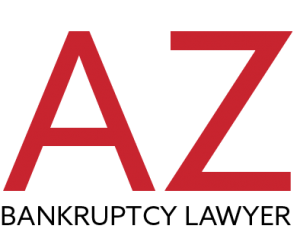A personal injury claim can be a significant financial asset, but if the claimant is going through bankruptcy, it may impact how the settlement or award is handled. Whether the claim is pending or already settled, bankruptcy laws determine whether the funds are protected or subject to creditors. Attorneys like those at Rispoli & Borneo P.C. can attest to the challenges individuals face when personal injury claims intersect with bankruptcy proceedings.
How Bankruptcy Type Affects A Personal Injury Claim
The type of bankruptcy filed plays a major role in how a personal injury claim is treated. Chapter 7 and Chapter 13 have different rules for handling settlements and ongoing claims.
- Chapter 7 bankruptcy – A person’s assets are reviewed and may be liquidated to pay debts. If a personal injury claim is considered part of the bankruptcy estate, it may be used to pay creditors unless exemptions apply.
- Chapter 13 bankruptcy – Instead of liquidating assets, debtors enter a repayment plan. A personal injury settlement may be factored into the repayment structure, potentially increasing the amount the debtor must pay.
Whether A Claim Is Part Of The Bankruptcy Estate
A critical factor is whether the injury occurred before or after the bankruptcy filing. If the accident happened before the bankruptcy case was filed, the claim is typically considered part of the bankruptcy estate. This means the trustee may have control over it. If the injury occurs after filing, the claim may not be included, depending on the circumstances and the type of bankruptcy.
In Chapter 7 cases, claims tied to pre-bankruptcy injuries usually belong to the estate. This means the trustee may settle or distribute proceeds to creditors. In Chapter 13 cases, funds from a settlement could impact repayment terms, even if the injury occurred after filing.
Exemptions That Protect Settlement Funds
Bankruptcy law allows exemptions that protect certain assets from creditors, including personal injury settlements in some cases. Federal and state laws vary on what portion of a settlement can be exempt. Common exemptions include:
- Compensation for medical expenses
- Damages for pain and suffering
- Loss of future earnings
Some states allow filers to use federal exemptions, while others have their own exemption rules. If the exemption covers the entire settlement, the funds may remain with the claimant rather than being distributed to creditors.
Trustee Involvement In Ongoing Cases
If a personal injury case is pending at the time of bankruptcy filing, the trustee may take control over it. This means they could negotiate or settle the claim, depending on what benefits the estate. Courts generally require full disclosure of any pending claims, so failing to report one could result in legal consequences.
A personal injury lawyer can help claimants understand how their legal recovery fits within bankruptcy law. Properly structuring a settlement and applying exemptions may allow a claimant to retain some or all of the compensation.
Disclosure Requirements And Potential Risks
Filing for bankruptcy requires full disclosure of all assets, including personal injury claims. Failing to list an active or potential claim could result in penalties, including case dismissal or loss of settlement funds. Courts expect honest reporting, and trustees have the authority to investigate undisclosed assets.
A personal injury claim can provide much-needed financial relief, but when bankruptcy is involved, legal considerations determine how those funds are handled. The right approach depends on the type of bankruptcy, applicable exemptions, and trustee involvement in the case.

